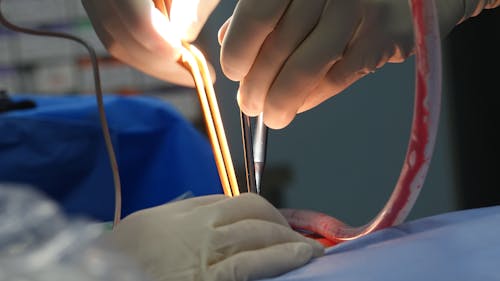Is Your Dental Implant at Risk? Signs and Prevention of Infection
Dental implants offer a reliable solution for missing teeth, but infections can threaten their success. This article outlines essential signs of dental implant infection and preventative measures to ensure long-term success. Understanding these aspects can help patients maintain their dental health and reduce the risk of complications.
The Risk of Infection in Dental Implants
Dental implants are designed to seamlessly integrate into the jawbone, providing stability similar to natural teeth. However, the risk of dental implant infection can jeopardize this integration. Infection can occur due to several factors, including surgical errors, poor oral hygiene, or an individual's health status. It's imperative to be aware of these risks to take effective preventive measures right from the start of the dental implant journey. Infections can lead to serious complications, including potential loss of the implant, so understanding the risks involved is pivotal for patients.
Identifying Signs of Infection
Understanding the signs of dental implant infection can help patients seek timely intervention. Signs to look out for include persistent swelling, discomfort, or a discharge of pus around the dental implant site. Additionally, if the pain worsens over time rather than diminishing, it may indicate an underlying infection developing. Unpleasant odors or tastes from the implant area are also concerning signs that should not be ignored. Being vigilant about these symptoms can lead to earlier diagnoses and treatment, ultimately preserving the success of the dental implant procedure.
Prevention Strategies for Patients
Prevention is the cornerstone of maintaining the health of dental implants and avoiding infections. Patients should prioritize oral hygiene practices, brushing twice a day and flossing to remove plaque and food particles around the implant. Regular dental check-ups are crucial, allowing professionals to monitor the implant site and perform deep cleanings when necessary. Moreover, it’s advisable for patients to avoid smoking, as it hampers blood flow and healing. Incorporating an antibacterial mouth rinse can also help keep bacteria at bay. These strategies can significantly reduce the risk of developing dental implant infection.
Importance of Post-Surgical Care
Post-surgical care is essential for minimizing the risk of dental implant infection. Following the dentist's instructions after the procedure is crucial, which may include restricting certain activities and consuming prescribed medication to manage pain or minimize inflammation. Patients should be aware of their body’s healing process and report any unusual experiences immediately. Additionally, ensuring a well-balanced diet can support healing and enhance the immune response, further safeguarding against infections. Strong post-surgical practices contribute significantly to long-term implant success.
When to Seek Professional Help
Understanding when to seek professional help for dental implant infection is vital for preserving oral health. If patients experience any signs of infection such as severe pain, unusual discharge, or persistent swelling, they should contact their dentist immediately. Timely intervention can often prevent more serious complications from developing. Dental professionals may recommend various treatment plans, from antibiotics to possibly surgical intervention, depending on the severity of the infection. Regular communication with a dental care provider notably enhances the success rate of dental implants.
Conclusion: The Value of Knowledge and Vigilance
In conclusion, recognizing the risk factors and signs associated with dental implant infection is paramount. By maintaining excellent oral hygiene, following post-surgical care guidelines, and seeking immediate medical attention when necessary, patients can optimize their dental health and extend the lifespan of their implants. Knowledge and vigilance can make a significant difference in preventing dental implant infections and ensuring a successful outcome.
